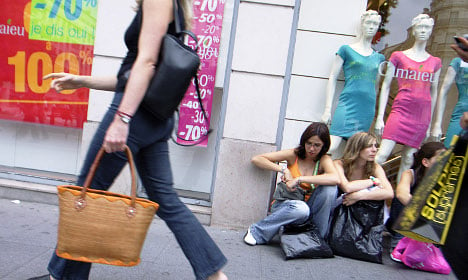The new law reverses a 2008 decision allowing retailers two weeks of so-called “floating sales” to be held whenever shops saw fit.
Now the winter and summer sales will once again become the only times retailers are allowed to operate at a loss as they clear the decks and make room for new stock.
The two extra weeks of off-piste sales activity were brought in by Nicolas Sarkozy’s centre-right government in an attempt to get French people to part with their euros and boost consumption.
But a 2012 report from the Crédoc research centre and the French Institute of Fashion said the reform benefitted big retailers and brands at the expense of small stores, which could not compete with the marketing budgets of the major chains, mainly in the clothing sector.
The commerce minister at the time, Sylvia Pinel from the Radical Left Party, then moved to ditch the “floating sales” in line with the report's recommendation, paving the way for the new law.
Not everybody welcomed Monday's death knell for off-season sales, however. A spokesman for the liberal Generation Libre think tank said President Francois Hollande was “killing growth”.
Quand @fhollande tue la croissance: Suppression des soldes flottants dès lundi via @Le_Figaro http://t.co/YdEYI258IO
— Français d'Italie (@FrancaisdItalie) May 11, 2015
Anthony Audebert, head of digital marketing at Maison Barclay, a French record label owned by Universal Music, described the reform as “a pity”.
La fin des soldes flottants. Dommage http://t.co/cXnuqCyaRU via @strategies1
— Anthony Audebert (@kanthos) May 11, 2015



 Please whitelist us to continue reading.
Please whitelist us to continue reading.